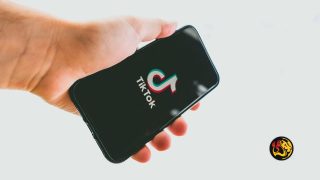Listeners:
Top listeners:
-
 play_arrow
play_arrow
Trump Orders US Takeover Of TikTok Amid Security Concerns


by Stefan J. Bos, Worthy News Chief International Correspondent
BEIJING/WASHINGTON (Worthy News) – U.S. President Donald J. Trump has signed an executive order he says will allow the popular social media platform TikTok to continue operating in the United States while addressing long-standing national security concerns.
The order paves the way for an American-led group of investors, including Oracle and Silver Lake, to acquire TikTok’s U.S. operations from China’s ByteDance. Under the current proposal, U.S. investors will hold about 80 percent of the new U.S. entity, while ByteDance will retain less than 20 percent.
The arrangement values TikTok’s American business at roughly 14 billion dollars, according to U.S. officials and company sources.
Trump said at a White House signing ceremony Thursday that Chinese President Xi Jinping has agreed in principle to the plan, though the deal still requires final approval in Beijing.
“We wanted to keep TikTok operating, but we also wanted to make sure that we protected Americans’ data privacy as required by law,” added Vice President JD Vance. He acknowledged “there was some resistance on the Chinese side” but stressed that the outcome preserves both national security and access to the app.
NATIONAL SECURITY CONCERNS
Washington’s move comes after years of warnings by U.S. officials that TikTok’s Chinese parent could be compelled under Beijing’s 2017 National Intelligence Law to share sensitive data with Chinese authorities.
The platform has an estimated 170 million American users, making it one of the most widely used social media apps in the United States.
Former Federal Bureau of Investigation (FBI) Director Christopher Wray previously said TikTok “screams” of national security concerns, warning that the Chinese government could use the app to “control software on millions of devices and drive narratives to divide Americans.”
Democratic Senator Richard Blumenthal of Connecticut, who has served in the U.S. Senate since 2011 after two decades as his state’s attorney general, echoed those fears.
He said TikTok was a “gun aimed at Americans’ heads” by weaponizing information gathered from millions of users.
BRIEF BLACKOUT IN JANUARY
Yet TikTok’s vulnerability was underscored earlier this year when the mobile application, or app, went dark in the United States on January 18, 2025, after the new divest-or-ban law took effect.
It was briefly removed from Apple’s App Store and Google’s Play Store, leaving millions of smartphone users without access.
Service was restored the next day following political moves in Washington that cleared the way for negotiations on a U.S.-led takeover.
In April 2024, Congress passed the Protecting Americans from Foreign Adversary Controlled Applications Act (PAFACA), requiring ByteDance to divest TikTok or face a nationwide ban.
Earlier this year, the U.S. Supreme Court upheld the law’s constitutionality. Trump’s order grants an additional 120 days to finalize the deal and bring TikTok into compliance with the legislation.
BROADER STRUGGLE
The TikTok saga underscores a broader geopolitical struggle between Washington and Beijing over technology, data, and global influence.
TikTok also became personal for Trump. He himself has said that he used TikTok in his 2024 presidential campaign to help reach younger voters.
“We got record votes with the young voters … so I was a little bit prejudiced in that way toward TikTok — it was very good and very meaningful,” he said.
For many Americans, the app represents both the promise of digital connectivity and the concerns of foreign control in an age where information has become a powerful weapon.
Copyright 1999-2026 Worthy News. This article was originally published on Worthy News and was reproduced with permission.
Latest News from Worthy News
China’s military leadership is facing major upheaval after its most senior general — a close ally of President Xi Jinping — was accused of leaking information about the Communist country’s nuclear-weapons program to the United States and committing other “serious violations of discipline and law.”
The recovery of the final Israeli captive, Sergeant First Class Ran Gvili, during Operation Brave Heart in eastern Gaza City has removed the last major obstacle to reopening the Rafah Crossing, paving the way for the continued implementation of U.S. President Donald Trump’s 20-point plan for Gaza.
A federal judge on Monday heard arguments from the state of Minnesota seeking an emergency halt to the Trump administration’s deployment of thousands of federal immigration agents to the Twin Cities, a sweeping operation that has intensified tensions between state and federal authorities following a fatal shooting involving a Border Patrol agent.
A systematic organization behind riots in Minnesota exposed through leaked group chats is under investigation, says FBI Director Kash Patel.
Israel’s military confirmed Monday it recovered the remains of Ran Givli, a special forces officer killed in the Hamas-led October 7, 2023, attack on Israel, ending a more than two-year effort to bring him home.
The United States has formally completed its withdrawal from the World Health Organization, citing the organization’s handling of the COVID-19 pandemic, failure to implement meaningful reforms, and what U.S. officials described as undue political influence by member states.
The U.S. aircraft carrier USS Abraham Lincoln and its accompanying warships have entered the Middle East, according to U.S. officials, significantly expanding President Donald Trump’s military options as tensions with Iran continue to escalate.

WHO WE ARE
The Psalms, hymns, and spiritual songs encapsulate the beauty, wisdom, and eternal truths found in the Bible, creating an immersive experience that resonates with believers and seekers alike.
CONTACT
- +1 908 280-4246
- Essex County, USA
- info@tnjrfm.com
Copyright The New Jerusalem Media.









